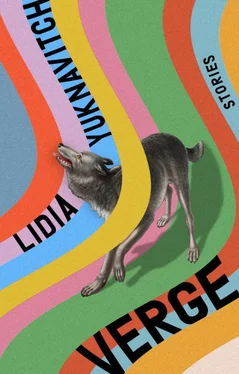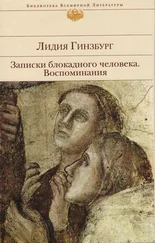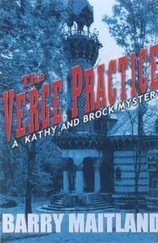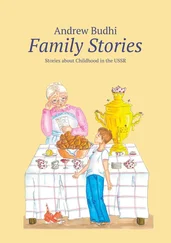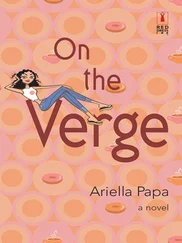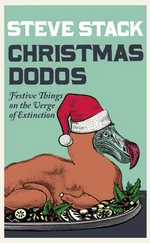Лидия Юкнавич - Verge - Stories
Здесь есть возможность читать онлайн «Лидия Юкнавич - Verge - Stories» весь текст электронной книги совершенно бесплатно (целиком полную версию без сокращений). В некоторых случаях можно слушать аудио, скачать через торрент в формате fb2 и присутствует краткое содержание. Город: New York, Год выпуска: 2020, ISBN: 2020, Издательство: Riverhead Books, Жанр: Современная проза, на английском языке. Описание произведения, (предисловие) а так же отзывы посетителей доступны на портале библиотеки ЛибКат.
- Название:Verge: Stories
- Автор:
- Издательство:Riverhead Books
- Жанр:
- Год:2020
- Город:New York
- ISBN:978-0-52553-487-7
- Рейтинг книги:4 / 5. Голосов: 1
-
Избранное:Добавить в избранное
- Отзывы:
-
Ваша оценка:
- 80
- 1
- 2
- 3
- 4
- 5
Verge: Stories: краткое содержание, описание и аннотация
Предлагаем к чтению аннотацию, описание, краткое содержание или предисловие (зависит от того, что написал сам автор книги «Verge: Stories»). Если вы не нашли необходимую информацию о книге — напишите в комментариях, мы постараемся отыскать её.
A fiercely empathetic group portrait of the marginalized and outcast in moments of crisis, from one of the most galvanizing voices in American fiction. cite
Verge: Stories — читать онлайн бесплатно полную книгу (весь текст) целиком
Ниже представлен текст книги, разбитый по страницам. Система сохранения места последней прочитанной страницы, позволяет с удобством читать онлайн бесплатно книгу «Verge: Stories», без необходимости каждый раз заново искать на чём Вы остановились. Поставьте закладку, и сможете в любой момент перейти на страницу, на которой закончили чтение.
Интервал:
Закладка:
She considered trying to speak to other mammals. But her voice locked in her throat when she thought of what she was: a girl with nothing, no money, no family, a name without documents. All she could feel was the warm cave between her legs and the small and sure soft swell of each of her breasts. Well, at least my body has meaning, she thought. Value signifies meaning, right?
In the evenings, when she was delivered like a cardboard box from a UPS truck, sifted through by rummaging hands like recycling, she went dead.
Her nightly destinations threatened to unweave her intestines and pour them out in a gray mucous line onto the street. Somewhere in her skull or rib cage, the hint of old ideas—family, home—lingered, but the memories were not strong enough to negate their absence in this place. In this place her being was her bodyworth. In this place it was be or die.
This night, like every other, the doorway to the hotel looked to her like the yawning mouth of an old man. Repetition makes a thing real. The everynight of things entering a body until a path was carved.
Her eyeballs shivered, and her rib cage made a sound in the wind like chimes. Knocking on the door took more than a girl.
Well, she thought, even if I am entering the loose-skinned mouth of a saggy old man, a job’s a job . A phrase she’d lifted from the mouths of other popsicles as a survival mantra. Along with this: Do not do not do not behave “like an immigrant.” Do not out yourself. Language is a funny thing, she thought. It opens and closes. It trips you like a crack in the sidewalk. Keep moving or die.
On the television in the hotel bedroom of the slackened old gray man—her john for the evening—was a war zone. Between the old gray john’s legs she could see the televised rubble, the huddled clumps of human crouched and lurching and running. “Suck,” he said. Deflated bad-tasting balloons filled the wet opening of her mouth. The rubble and the humans and the CNN ticker tape… she closed her eyes and sucked. He fingered into her. He put his jowls down near her face, his mouth to her ear: “I’m a very important man… the most important man… . Your little holes are so tight.” He smiled wide enough for her to see the pink of his receding gums.
There was one thing besides her body that she possessed—a story, in a foreign tongue but still a story—and always upon her return to the front man’s concrete house she would relate the story to the other popsicles. She did not know why she retold it, only that the recitation could not be stopped. What else did she have? What currency but story? Like the continual expulsion of her insides to the outside, story came. And the popsicles would lean in, eyes wide, mouths and wrists open to the future, and listen.
Long ago in a faraway land, there was a czar who had a magnificent orchard, an orchard second to none. However, every night a firebird would swoop down on the czar’s best apple tree and fly away with a few golden apples. The czar ordered each of his three sons to catch that firebird alive and bring it to him.
The two elder brothers fell asleep while watching. The youngest son, Ivan, saw the firebird and grabbed it by the tail, but the bird managed to wriggle out of Ivan’s grasp, leaving him only a bright red tail feather.
Ivan, assisted by a graywolf who killed his horse and then felt sorry for him, because even wolves understand how unfortunate men are, managed to get not only the firebird but also a wonderful horse and a princess named Elena the Fair. When they came to the border of Ivan’s father’s kingdom, Ivan and Elena stopped to rest. While they were sleeping, Ivan’s two older brothers, returning from their unsuccessful quest, came across the two and killed Ivan, threatening Elena to do the same to her if she told what had happened. They ravaged Elena and threatened to cut out her tongue.
Ivan lay dead for thirty days until the graywolf revived him with water of death and water of life. Ivan came to his home palace at the wedding day of Elena the Fair and one of Ivan’s brothers. The czar asked for an explanation, and Elena, with the wolf standing guard gnashing his teeth, told him the truth. The czar was furious and threw the elder brothers into prison. The wolf ate their entrails out in the night. Ivan and Elena the Fair married, inherited the kingdom, and lived happily ever after.
None of the popsicles ever said a word about the story. But her telling brought sleep lapping over them like a kind night ritual.
TIME PASSED. Enough for her to realize no graywolves would come.
Although she knew that stories had beginnings, middles, and ends, she also knew that, for her and those displaced like her, the order was out of whack. Once story had been like home, but now story had been fragmented and gnawed at the edges. Once there were heroes and saviors, but they had turned into con artists and reality-TV stars and dizzy whirring consumers. Or maybe there had never been any heroes and saviors and those stories were only meant to trick girls into forgetting how to be animals.
Just as it lengthened her spine, strength in a girl like her made her eyes smaller and steelier, her jaw more square, her cheekbones high like canted clamshells. Even her collarbone spoke, but in this place people didn’t seem to hear. They responded with dead stares or shrugged shoulders.
You need to speak better English, they said.
She longed for the graywolves, furred and growling and teethed, to rip loose the entrails of enemies.
The last night, in the hours before dawn, after she was delivered back to the house of ravaged popsicles, after she had again told the story from her mother dead, her grandmother dead, her great-grandmother dead, after she had washed the blood from her mouth, her nipples, from between her legs where she realized life would never pass the way it had moved from the cleft of her mother, her grandmother, her great-grandmother, and the blood from the smaller aperture of her ass, the rivulets of red winding their way down the rusted drain holes of an unclean shower, when she put herself down on a formless mattress on the floor under a window of the house filled with girl popsicles, the cave of her concrete world opened up—cracks in reality—and through the window she could see the towering white-eyed angels hovering over them, streetlights, they called them here, and a nightwatch of lost leaves whispered against her hair. Tin and paper rustlings made urban lullabies. Or maybe it was just the ugly end of the city, like everyone kept saying on television, where girls go to disappear and die. She wondered if death could transform into an animal, by her own hand even. Not as an ending but as a bluewhitened pulsar; couldn’t it, blazing the entire night sky apart and atomizing everything ever done to girls? Couldn’t deranged graywolves come back from old stories, from native land, to tear out the throats and sagging balls of old gray johns; couldn’t they enter through astral projections ancient as folktales embedded in the dead bones of her mother and hers and hers, gone to dirt but still alive there—charged? Weren’t there still secret triumphs, secret powers, to living dead girls?
There were; she could feel it. The strength that lived in this popsicle house. She could feel it, and she had no word for it.
Without thinking, she punched a hole with her fist through the window in their cinder-block box. She elbowed the hole until it was big enough for the popsicles to leave, elbow blood everywhere; then, quiet as a mother’s voice singing a child to sleep in a mothertongue, they slipped out. As the popsicles tumbled out into the night like child refugees—oh! how they glowed like human snowflakes underneath the streetlights!—she knew what else to do. She’d have to conjure the graywolves. Not the old gray wrong American manwolves, but the real thing.
Читать дальшеИнтервал:
Закладка:
Похожие книги на «Verge: Stories»
Представляем Вашему вниманию похожие книги на «Verge: Stories» списком для выбора. Мы отобрали схожую по названию и смыслу литературу в надежде предоставить читателям больше вариантов отыскать новые, интересные, ещё непрочитанные произведения.
Обсуждение, отзывы о книге «Verge: Stories» и просто собственные мнения читателей. Оставьте ваши комментарии, напишите, что Вы думаете о произведении, его смысле или главных героях. Укажите что конкретно понравилось, а что нет, и почему Вы так считаете.
